Taiwan-US Relations Strengthened in New Global Dynamic - Director-General Douglas Hsu: "Rock-solid!"
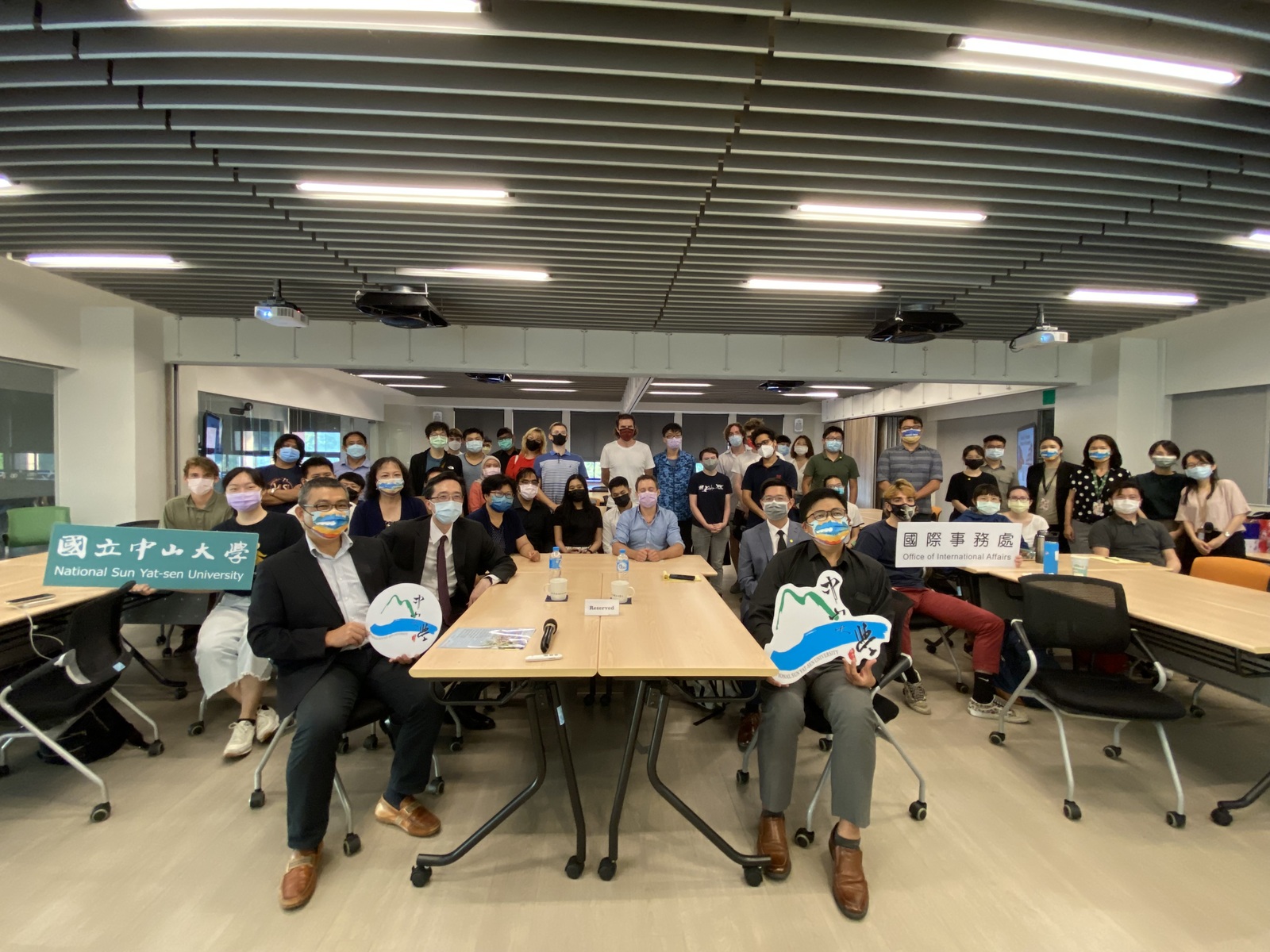
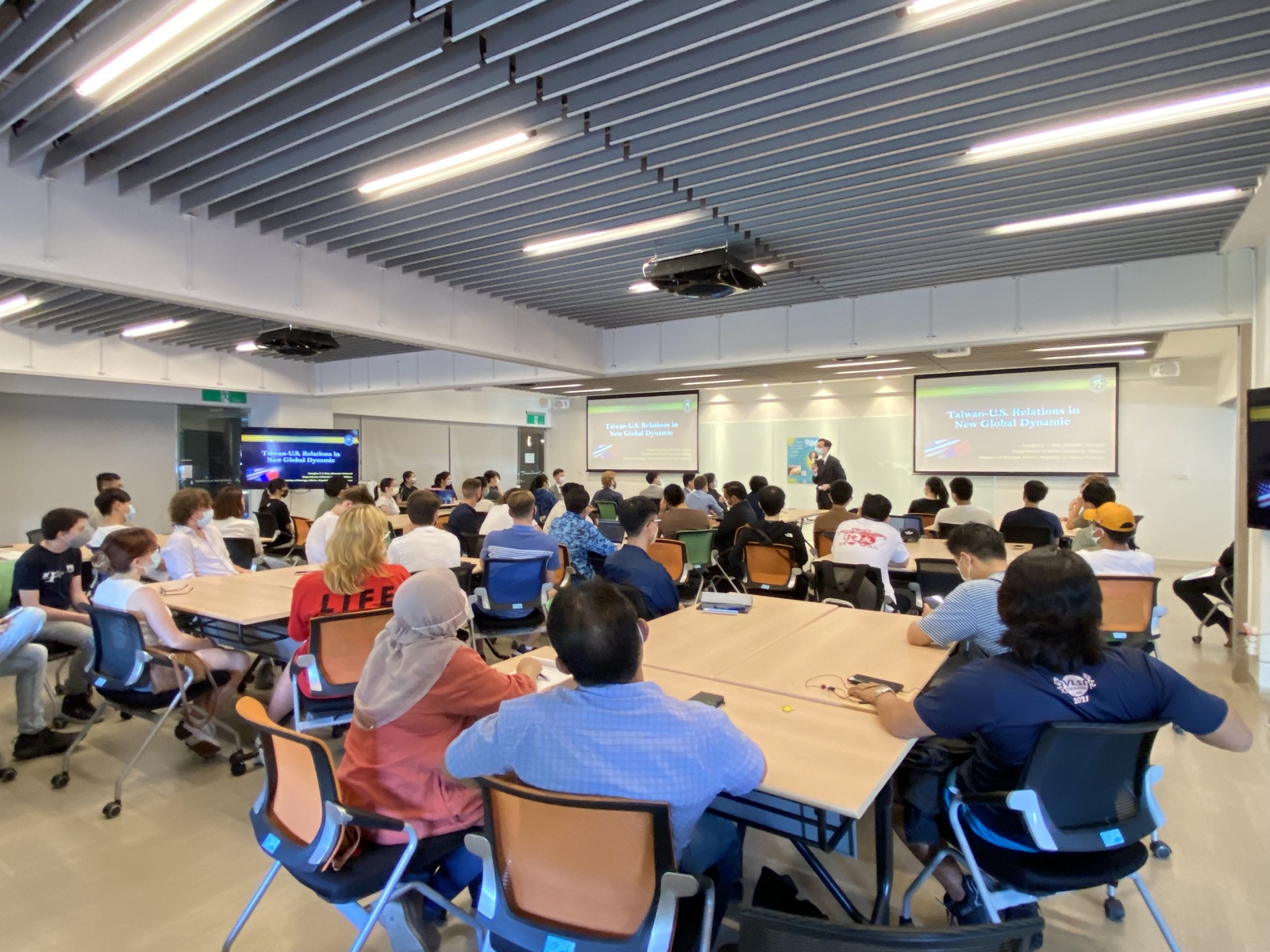
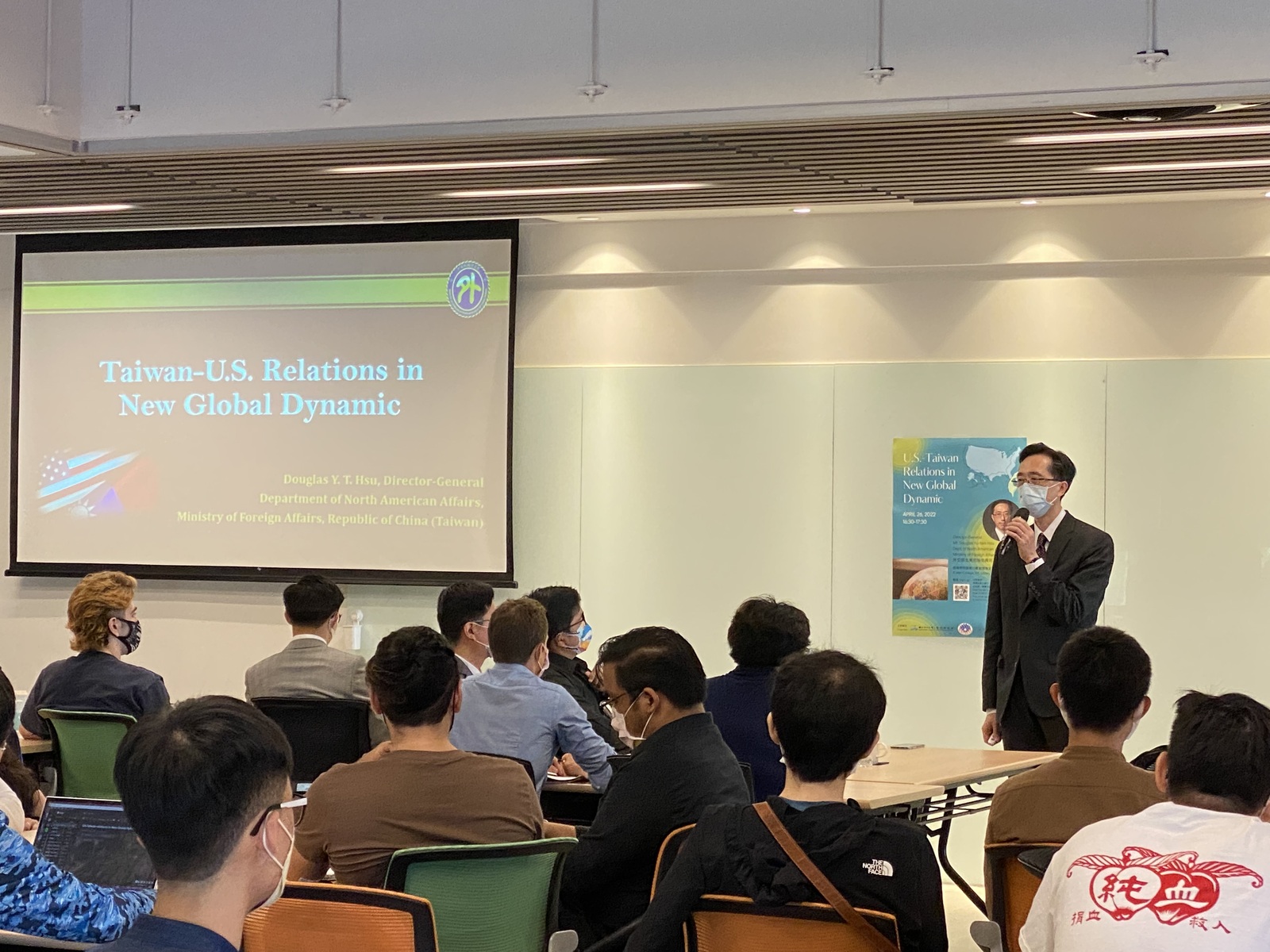
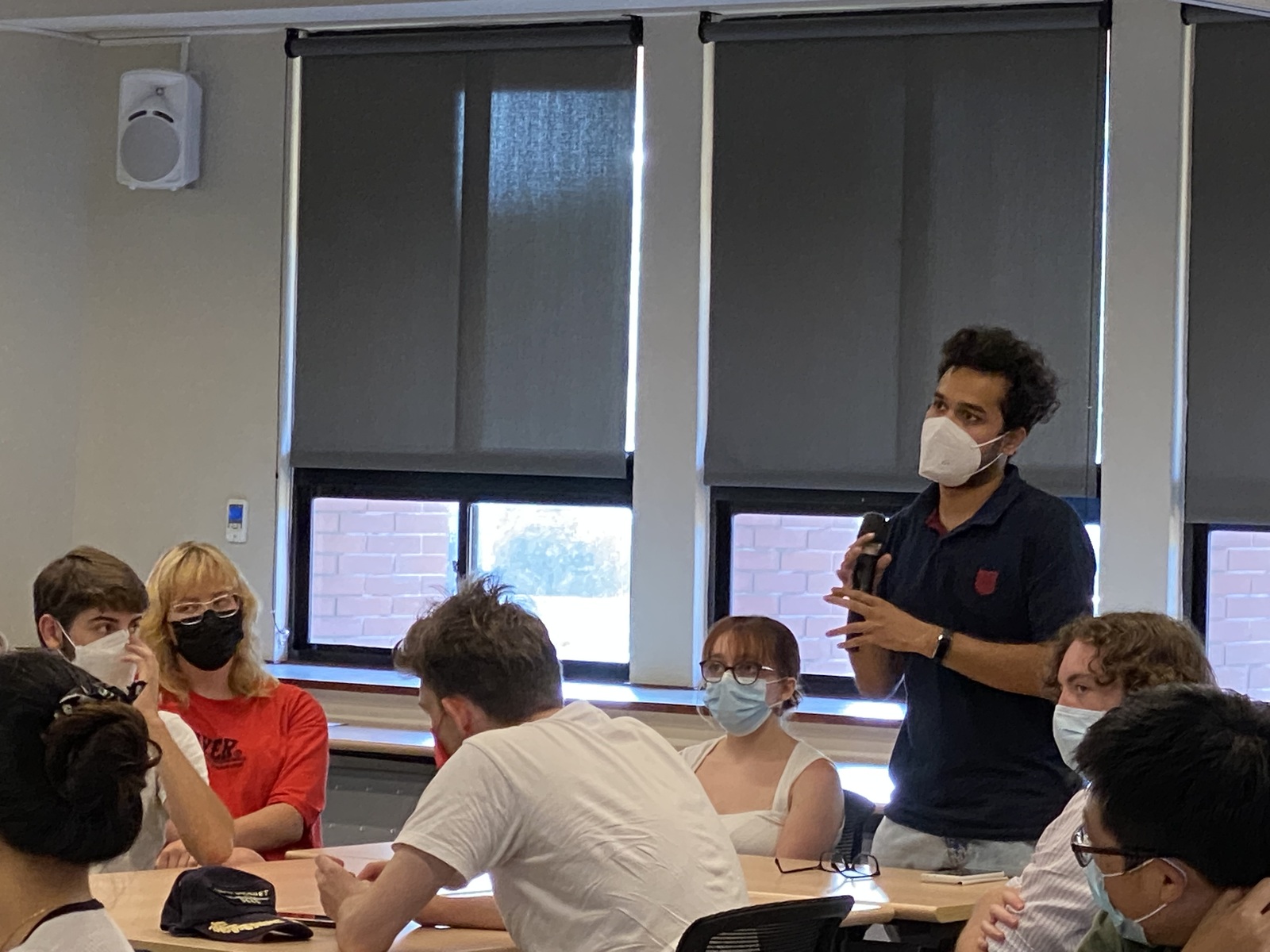
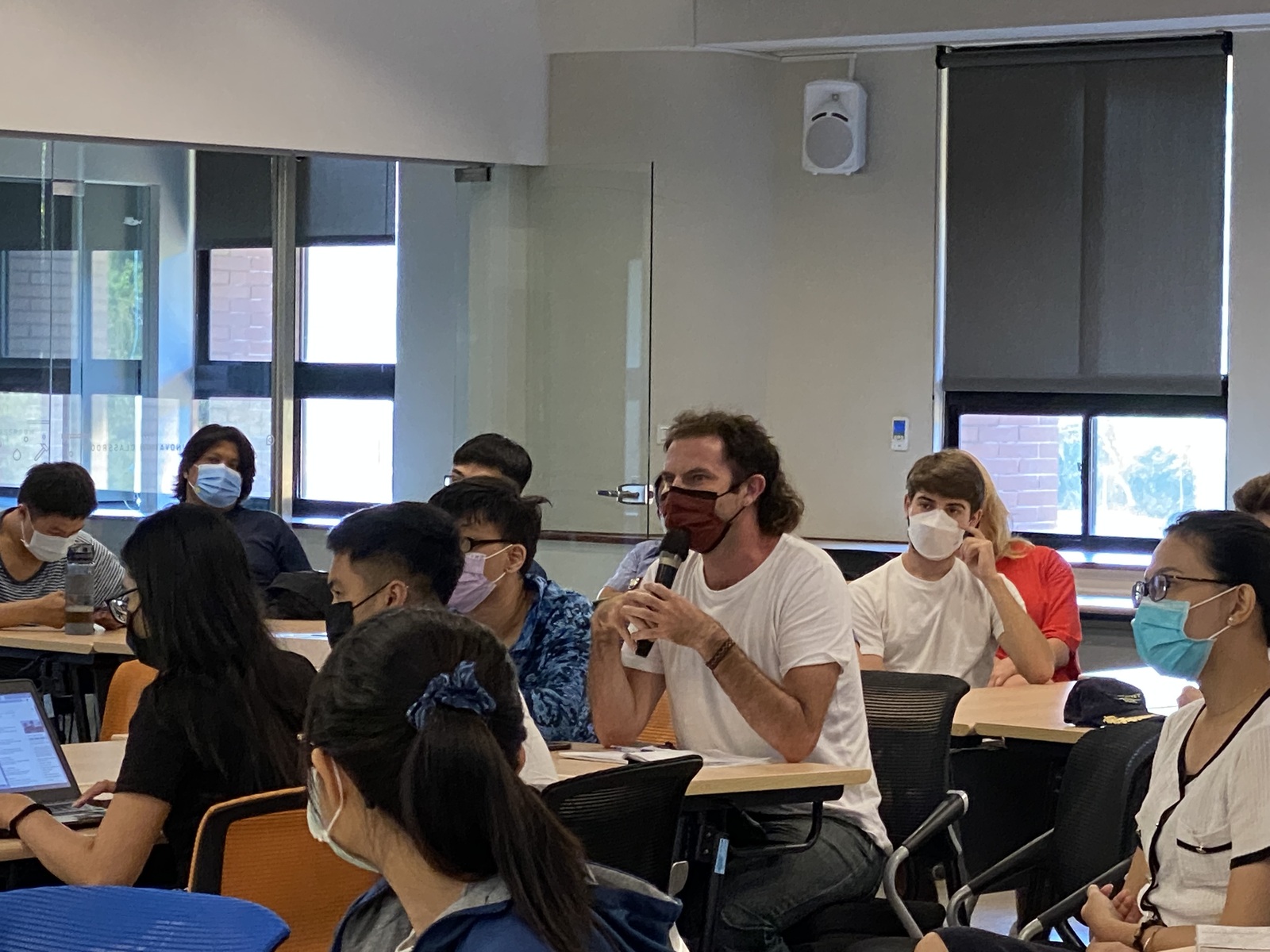
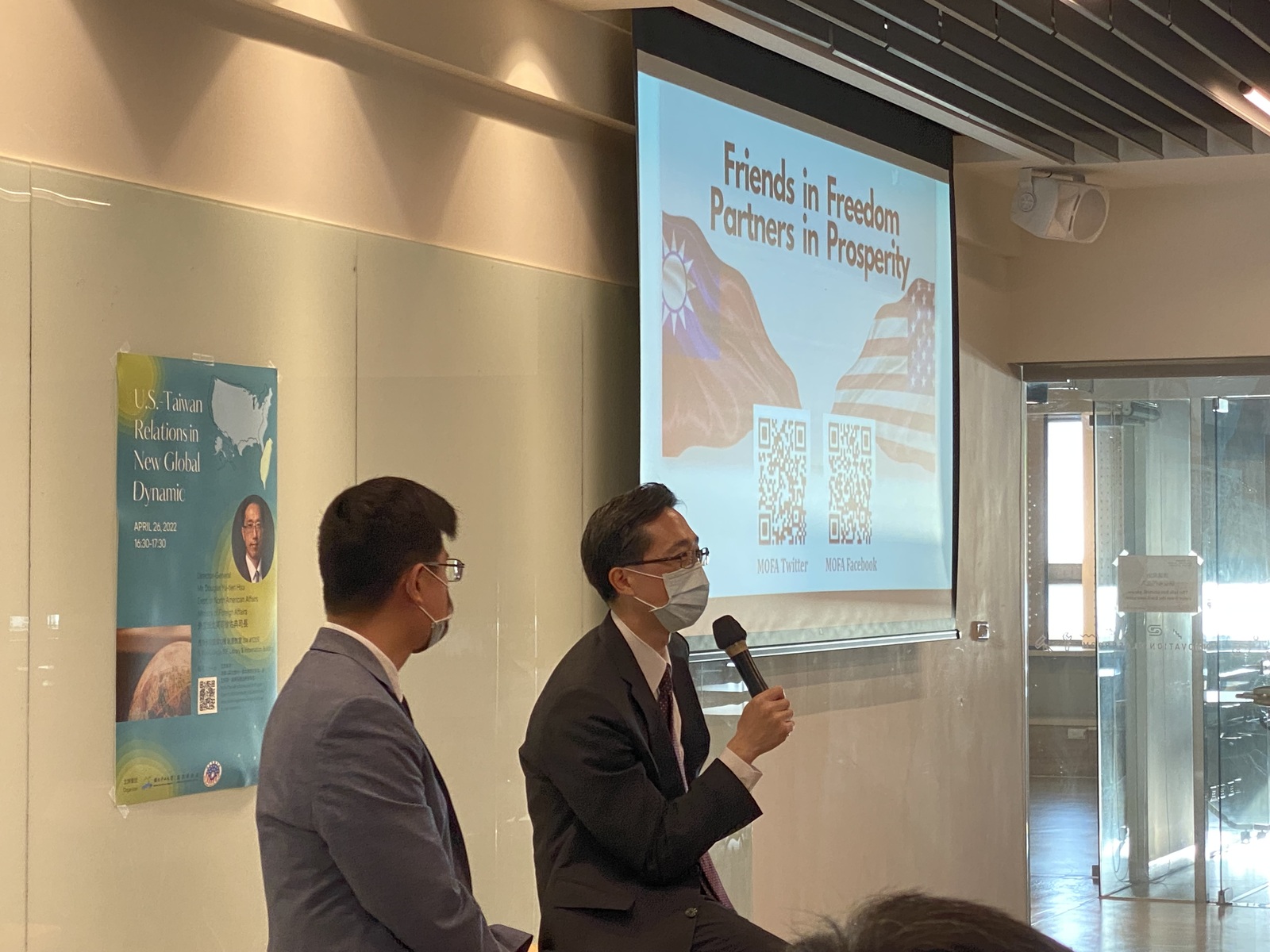
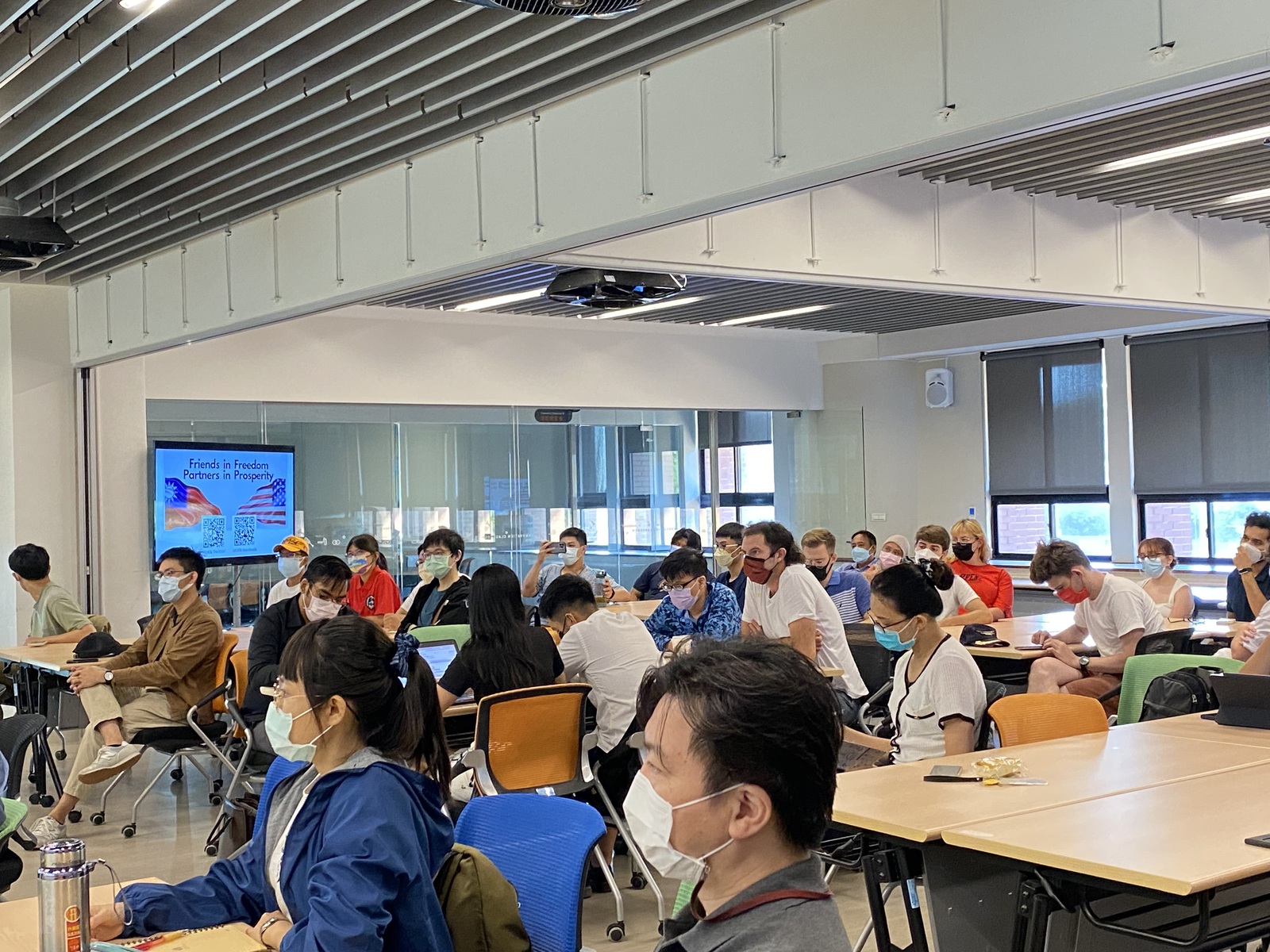
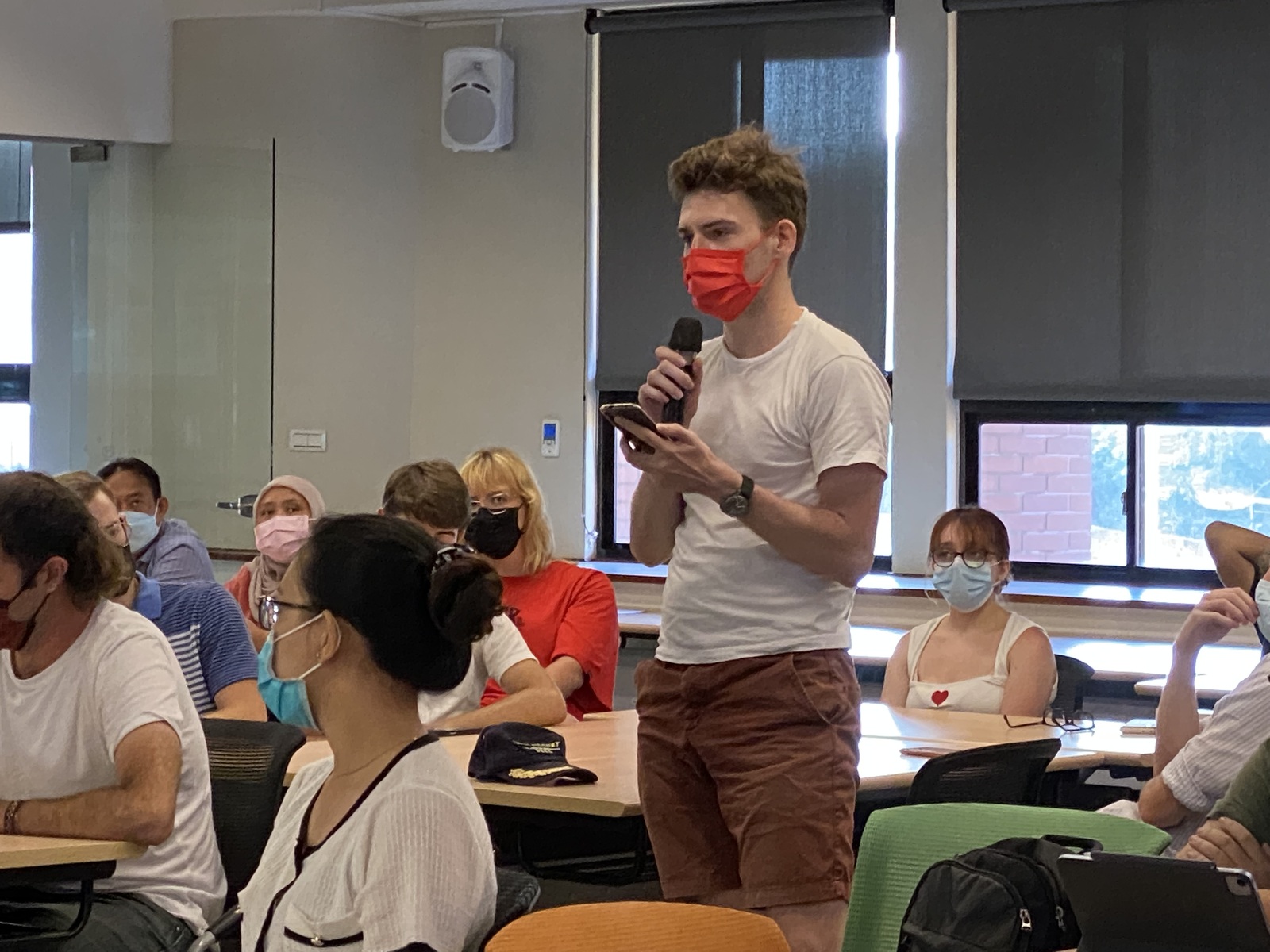
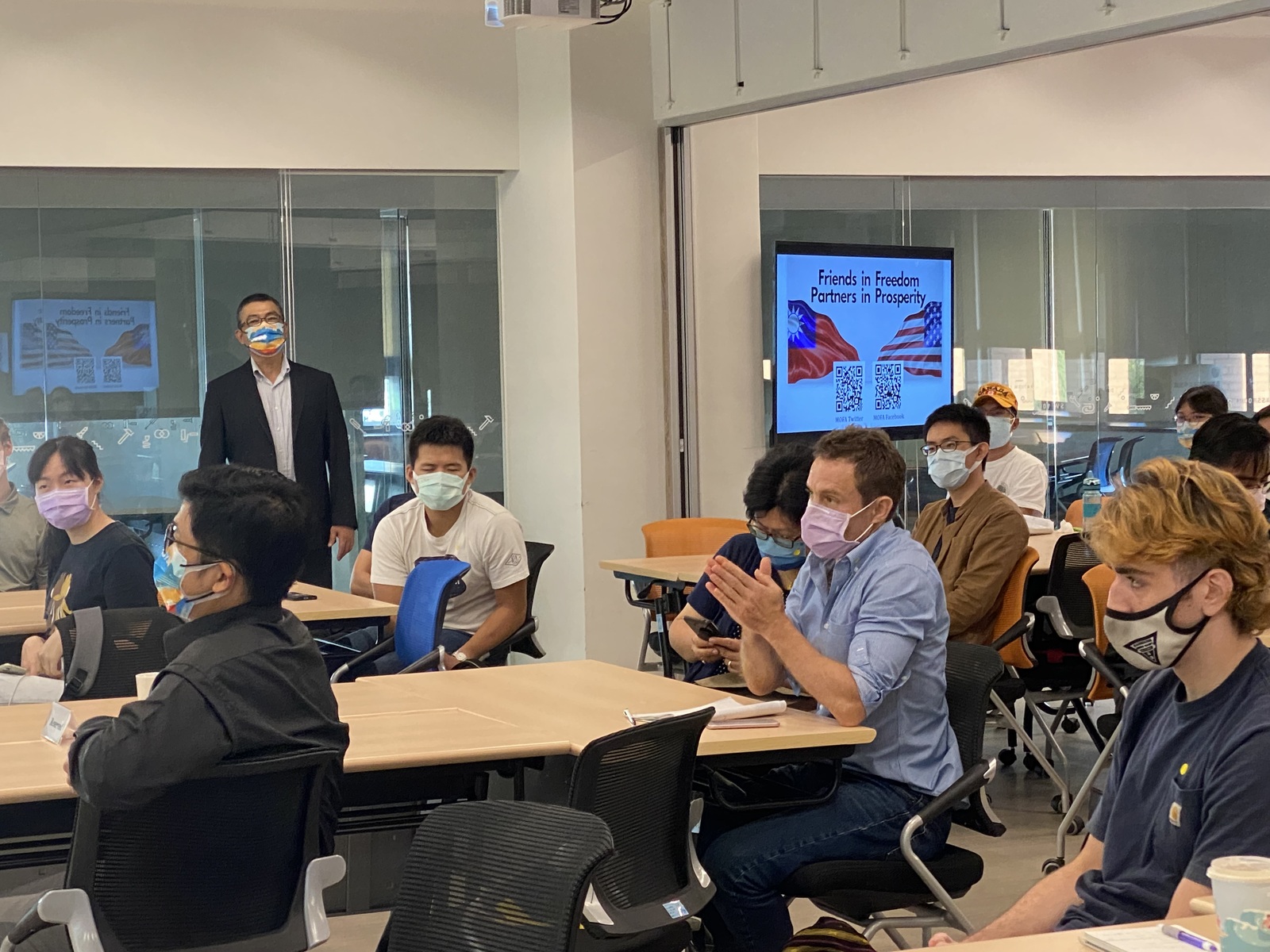
As the world faces the pandemic, the Taiwan Strait Crisis, and the Russian Ukraine War, Taiwan's visibility in the international community has dramatically risen, and Taiwan-US relations have also changed. On April 26, the Office of International Affairs invited Mr. Douglas Yu-tien Hsu, Director General of the Department of North American Affairs of the Ministry of Foreign Affairs, to talk about the latest development in Taiwan-US relations. Director-General Hsu gave an overview of the official documents signed by the two sides since the severance of diplomatic relations and the crucial legislation and policy decisions under its previous presidents on the US side. He emphasized that the United States has unprecedentedly enacted as many as 67 pieces of legislation on Taiwan in recent years. Various developments also show that the US's long-term commitment to Taiwan is, as Secretary of State Antony Blinken and Secretary of Defense Lloyd Austin said, 'Rock-solid.'
Director-General Hsu has personal experience and in-depth observation of Taiwan-US relations as he has been stationed in the United States for a long time. He elaborated on the recent cooperation between the two sides from six aspects: interactions between leaders and high-ranking officials, security cooperation, economic relationship, US support for Taiwan's participation in the global community, global partnership, and educational cooperation. He pointed out that the Taiwan Relations Act, signed in 1979 when Taiwan and the United States severed diplomatic relations, and the Six Assurances that followed have always been the legal basis for the interaction between Taiwan and the United States. In his presidency, President Trump signed the Taiwan Travel Act, Asia Reassurance Initiative Act, Taiwan Allies International Protection and Enhancement Initiative Act (Taipei Act), etc., which demonstrates the importance of Taiwan as a partner in the US Indo-Pacific strategy. In April 2021, the State Department issued new guidelines for government sectors to engage with Taiwan, where many restrictions were lifted. The new guidelines allowed US officials to meet more freely with Taiwanese officials, such as visiting representative offices and federal government agencies. The high-level delegations of the Biden Administration, the US Congress delegations, and Speaker Pelosi, who was initially expected to visit, showed the US government's concern and support for Taiwan and the deepening partnership between the two sides.
The two countries have a very close economic tie. In 2021, the United States was Taiwan's second-largest trading partner and export market and the third-largest import supplier; Taiwan was the eighth-largest trading partner and import supplier of the United States and the 11th largest export market. The two sides also carry out strategic cooperation in many aspects, such as signing various agreements on supply chain, technology trade and investment, infrastructure finance, and market building, as well as holding economic summits and forums.
In 2015, Taiwan and the United States signed the "Global Cooperation and Training Framework" (GCTF) to cooperate on issues of common concern, such as public health, women's empowerment, media literacy, energy efficiency, information security, and humanitarian assistance. The Ministry of Foreign Affairs uses Taiwan's strengths and expertise to host training workshops. The workshops provided training for government officials and experts from countries in the regions to build relevant capabilities for their respective countries and establish cooperative relations with Taiwan. Director-General Hsu emphasized that the partnership model has been genuinely successful, attracting Japan to join the partnership in 2019 and Australia in 2021. The workshop became online in 2020 because of the pandemic and received enthusiastic responses from Latin American countries. In 2021, it was moved abroad for the first time to the Czech Republic, which also received very positive feedback. So far, 45 workshops have been held, and more than 3,500 government officials and experts from 100 countries worldwide have participated in the training, bringing the world to see the value of Taiwan.
Director-General Hsu said that education is also a focus of recent Taiwan-US cooperation. The two sides signed the "Taiwan-American Education Initiative" in December 2020. The Ministry of Foreign Affairs and the Ministry of Education collaborate with the American Institute in Taiwan (AIT) to expand educational exchanges between the two countries and promote the Huayu BEST program and bilingual education programs.
The talk was opened by Professor Chih-Wen Kuo, Vice President for International Affairs, and Associate Professor Titus Chen of the Institute of Political Sciences served as the moderator. More than 50 faculty members and students attended the event, and more than half of them were international students. From the questioning to the exchanges with the Director-General after the talk, the international students were keen to know more about the Taiwan-US issues. It was an excellent opportunity for them to have face-to-face contact with Taiwan government officials, helping them gain a deeper understanding of Taiwan's diplomatic situation.
Director-General Hsu has personal experience and in-depth observation of Taiwan-US relations as he has been stationed in the United States for a long time. He elaborated on the recent cooperation between the two sides from six aspects: interactions between leaders and high-ranking officials, security cooperation, economic relationship, US support for Taiwan's participation in the global community, global partnership, and educational cooperation. He pointed out that the Taiwan Relations Act, signed in 1979 when Taiwan and the United States severed diplomatic relations, and the Six Assurances that followed have always been the legal basis for the interaction between Taiwan and the United States. In his presidency, President Trump signed the Taiwan Travel Act, Asia Reassurance Initiative Act, Taiwan Allies International Protection and Enhancement Initiative Act (Taipei Act), etc., which demonstrates the importance of Taiwan as a partner in the US Indo-Pacific strategy. In April 2021, the State Department issued new guidelines for government sectors to engage with Taiwan, where many restrictions were lifted. The new guidelines allowed US officials to meet more freely with Taiwanese officials, such as visiting representative offices and federal government agencies. The high-level delegations of the Biden Administration, the US Congress delegations, and Speaker Pelosi, who was initially expected to visit, showed the US government's concern and support for Taiwan and the deepening partnership between the two sides.
The two countries have a very close economic tie. In 2021, the United States was Taiwan's second-largest trading partner and export market and the third-largest import supplier; Taiwan was the eighth-largest trading partner and import supplier of the United States and the 11th largest export market. The two sides also carry out strategic cooperation in many aspects, such as signing various agreements on supply chain, technology trade and investment, infrastructure finance, and market building, as well as holding economic summits and forums.
In 2015, Taiwan and the United States signed the "Global Cooperation and Training Framework" (GCTF) to cooperate on issues of common concern, such as public health, women's empowerment, media literacy, energy efficiency, information security, and humanitarian assistance. The Ministry of Foreign Affairs uses Taiwan's strengths and expertise to host training workshops. The workshops provided training for government officials and experts from countries in the regions to build relevant capabilities for their respective countries and establish cooperative relations with Taiwan. Director-General Hsu emphasized that the partnership model has been genuinely successful, attracting Japan to join the partnership in 2019 and Australia in 2021. The workshop became online in 2020 because of the pandemic and received enthusiastic responses from Latin American countries. In 2021, it was moved abroad for the first time to the Czech Republic, which also received very positive feedback. So far, 45 workshops have been held, and more than 3,500 government officials and experts from 100 countries worldwide have participated in the training, bringing the world to see the value of Taiwan.
Director-General Hsu said that education is also a focus of recent Taiwan-US cooperation. The two sides signed the "Taiwan-American Education Initiative" in December 2020. The Ministry of Foreign Affairs and the Ministry of Education collaborate with the American Institute in Taiwan (AIT) to expand educational exchanges between the two countries and promote the Huayu BEST program and bilingual education programs.
The talk was opened by Professor Chih-Wen Kuo, Vice President for International Affairs, and Associate Professor Titus Chen of the Institute of Political Sciences served as the moderator. More than 50 faculty members and students attended the event, and more than half of them were international students. From the questioning to the exchanges with the Director-General after the talk, the international students were keen to know more about the Taiwan-US issues. It was an excellent opportunity for them to have face-to-face contact with Taiwan government officials, helping them gain a deeper understanding of Taiwan's diplomatic situation.
Click Num:
Share
